Articles & Resources
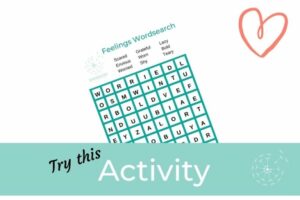
Children’s Activity: Feelings Wordsearch #2
We often talk about finding creative ways to talk about feelings can open new conversations. Sometimes, just sitting down can feel too confronting for some children, so activities can provide the perfect opportunity to explore what we are feeling and how it affects us. However, we also need to build on our feelings vocabulary as

Three things you need to know about girls and ADHD
ADHD (Attention Deficit Hyperactivity Disorder) is a disorder which is categorised into two parts: Inattention (concentration and focus) Hyperactivity and impulsivity Whilst most people with ADHD have difficulties in both areas, some only fall into one category. ADHD was first identified in 1846 by Heinrich Hoffman, and the scientific presentation by Sir George Frederic Still
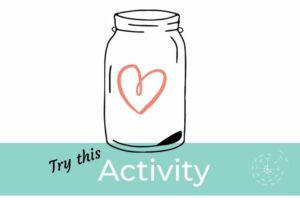
Children’s Activity: Feel Good Jar
Feel Good Jar Children can sometimes find it difficult to recognise their strengths, whether they are skills, traits or behaviours. Helping children to recognise their positives supports them to raise their self-esteem and therefore their well-being. So, this week we are looking at ‘Feel Good Jars’ to help children record their positive traits and recognise

What is Obsessive Compulsive Disorder?
Obsessive Compulsive Disorder (OCD) is a mental health condition where a child, teenager or adult has reoccurring thoughts and negative behaviours which they cannot control. There are many misconceptions about OCD and frequently, people will refer to themselves as having OCD when they do not. Whilst frequently a throw away comment ‘I’m a bit OCD’,
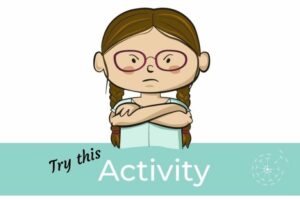
Children’s Activities: Anger Strategies
Why do we get angry?? Everyone has a different response to anger, and the reason for this is that everyone interprets the environment, relationships and situations differently. This is dependent on previous experience, developmental stage and our understanding of our own emotions and triggers. As such, no response to a situation is right or wrong,

What is attachment?
Attachment theory is a psychological theory, developed by John Bowlby (1977), that looks at the connections and relationships between humans. Attachments are those deep emotional bonds that we develop with another person, where we feel secure and close with them. In attachment theory, we examine the relationship between children and their parents, and the way
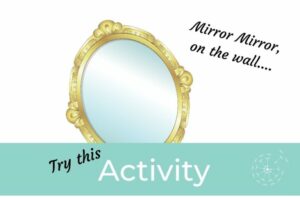
Children’s Activities: Self-esteem Mirrors
Valuing ourselves Supporting children to recognise their strengths and positive traits is a great first step to supporting them to develop their self-esteem. That can start with positive conversations, where we encourage children to recognise and validate their own strengths and positives. Helping them to build heir confidence in recognising what is wonderful about them,

Why supporting avoidance is not kindness
When children struggle with anxiety, it can feel like the kindest thing to allow them to avoid the situation that is affecting them. However, we quickly discover that the list of things that they need to avoid becomes bigger and bigger, and their world becomes smaller and smaller and smaller. Safety Behaviours When we use
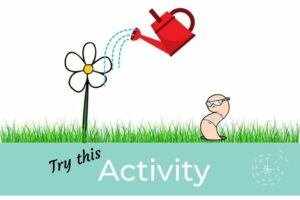
Children’s Activities: Grow your own Garden
Self-esteem Self-esteem is the value we place on our own worth. It is the opinion we have of ourselves. The way we view our worth in the world. It can be positive or negative, and the level of our self-esteem impacts the way that we see the world and the events that occur in our

Why we need to teach children (and adults) self-reflection
So often, I meet children (and adults) who are caught up in a challenging thought process where they are angry with particular features of friends, teachers, parents or peers. One of the activities that we often take part in, is to consider: “How much of that characteristic exists in you” All of us have mirror
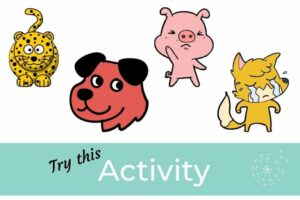
Children’s Activities: How am I feeling?
How am I feeling? A step of emotional literacy development is being able to recognise what our emotions are. In order to do this, we first need to consider their names and what they feel like. For children, exploring characters in stories is a first step to understanding how people feel and why they might

Why we need to look beneath child behaviour
Previously, I spoke about the child behaviour iceberg (find it here), so in this article, I want to look at the ABC of behaviour. When I started my career working as an early years practitioner, later as a Nursery Manager and then a lecturer of early years, (before eventually finding myself as an inspector) I would
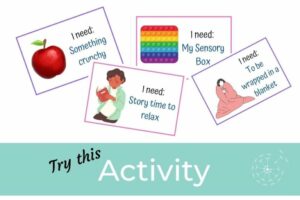
Children’s Activity: Regulation Flash Cards
Regulation Flash Cards If you have followed our article and podcast about self-regulation (if you missed it find it here) then you will know we have been talking about developing children’s emotional literacy, their ability to recognise and respond to their emotions. As part of this, supporting children to know which strategies they can use
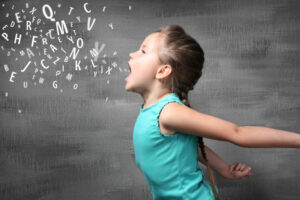
The Dangers of Toxic Positivity to Connection
How often, when you have been faced with a challenge, crisis or struggle, have you been bombarded with comments to be ‘more positive’ and ‘look at the bright side’ and felt completely minimised or dismissed? In this article, I want to explore the concept of ‘Toxic Positivity’ and some of the risks that it holds
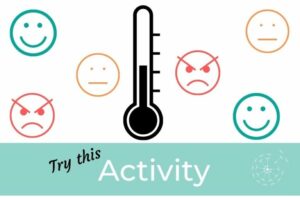
Children’s Activity: Feelings Thermometer
Feelings A step of emotional literacy development is being able to recognise what our emotions are. Many children can find it challenging to be able to recognise, identify and respond to their emotions, particularly emotions such as excitement and anxiety as both create adrenaline in the body. A great first step, is to encourage children

The importance of looking beneath the iceberg
We frequently discuss that behaviour can be likened an iceberg. However, from my experiences as both a teacher and a therapist, this can unintentionally be forgotten when it comes to managing and responding to children’s behaviour. The iceberg analogy gives us an opportunity to consider all the contributing factors which may be affecting a child’s
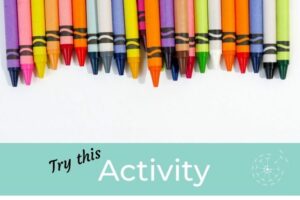
Children’s Activity: Regulation Colouring Sheet
If you have followed our article and podcast about self-regulation (if you missed it find it here) then you will know we have been talking about developing children’s emotional literacy, their ability to recognise and respond to their emotions. As part of this, supporting children to know which strategies they can use when they feel

Fight – Flight – Freeze – Fawn, How do you react?
Fight – Flight – Freeze – Fawn Many people are familiar with the concept of the fight – flight response. When our central nervous system involuntary responds to a perceived threat, an acute stress response kicks in and each individual, depending on their own programming will respond accordingly. Fight or flight, in its simplest form,
DISCLAIMER
The resources on this site are for individual use. They are not permitted to be mass reproduced by other organisations without a licensing fee. The content and resources on this site may not be mass reproduced in whole, or in part and are not for re-distribution by third parties without special permission from the provider. No use of these resources may be made for resale or any other commercial purposes without prior consent and written permission from Dandelion Training and Development. In some cases a licensing fee may apply.
